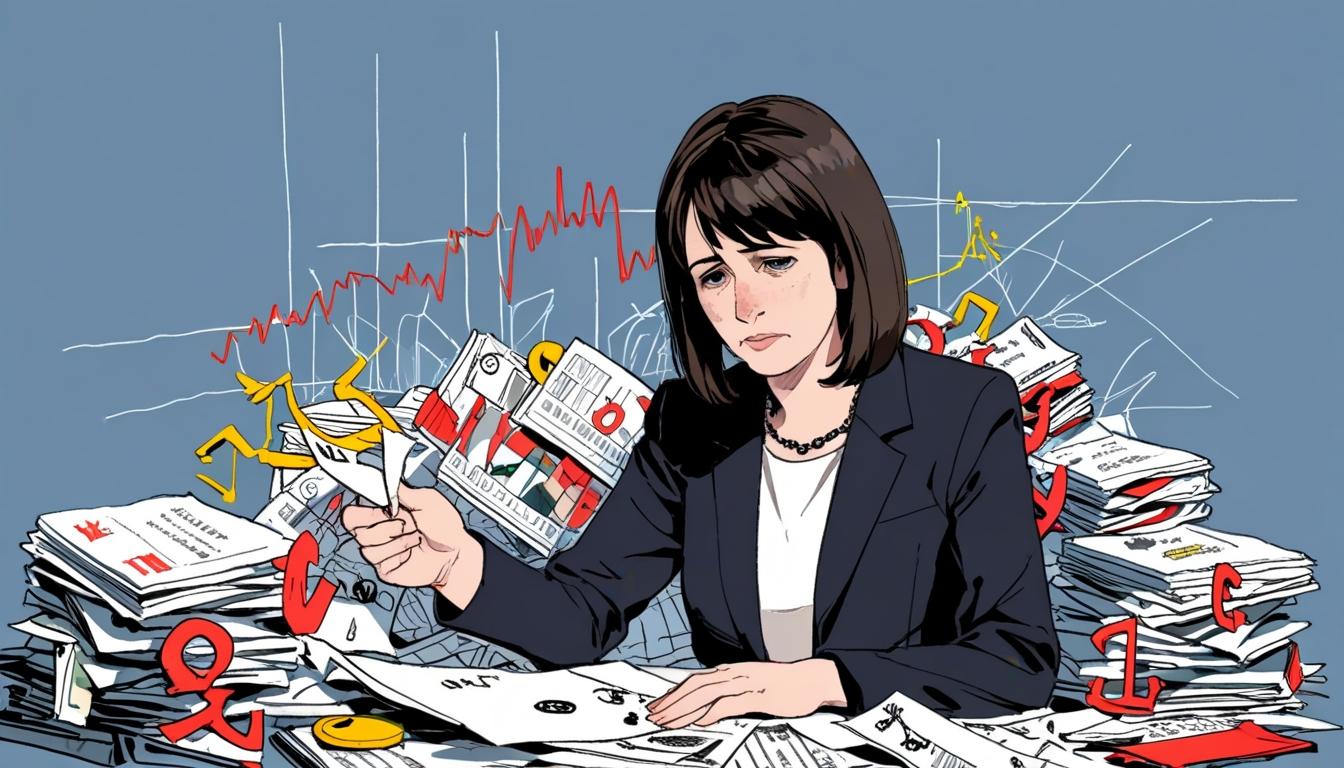Chancellor Rachel Reeves faces an increasingly untenable position merely ten months into her tenure, as the Express illustrates the enormity of her challenges. Initially celebrated as the UK's first female chancellor, her time in office has quickly devolved into a series of crises that raise serious questions about her economic acumen and leadership abilities.
Reeves has raised alarms over a £22 billion shortfall inherited from the previous Conservative government, yet critics argue her responses have only exacerbated the fiscal chaos. Stripping pensioners of their Winter Fuel Payment, a move deemed callous by many, has alienated key voter demographics and highlighted her disconnect with the very people who could bolster support for her party. Her ambition to stimulate economic growth has fizzled, leading to revised forecasts that not only disappoint but showcase her inability to grasp the economic landscape effectively.
Caught in a vice, Reeves is under immense pressure to avoid tax hikes, as increasing levies now appear counterproductive. Meanwhile, her attempt to cut state spending backfires spectacularly following backlash from her decision to reduce the Personal Independence Payment (PIP) in her Spring Statement. This has plunged her party further into electoral jeopardy and amplified scrutiny from the electorate.
As dismal growth forecasts loom and international dynamics, particularly from the United States, add strain to an already strained economy, Reeves may be forced to reconsider her allegedly “iron-clad” fiscal rules. What was once a firm commitment now seems increasingly untenable given the drastic economic conditions at play.
While the Express hints at potential support for Reeves, specifics are glaringly absent, leaving the impression of a leader floundering in the deep waters of economic mismanagement. As the ramifications of her policies ripple through the economy, the next weeks will undoubtedly determine not just her fate, but also the broader implications for a Labour government that appears more interested in political posturing than in genuine economic stewardship.
Source: Noah Wire Services
